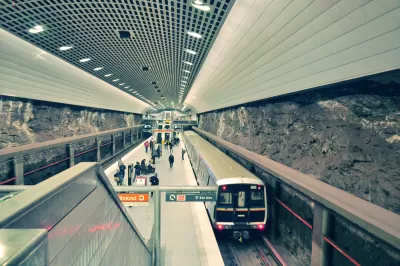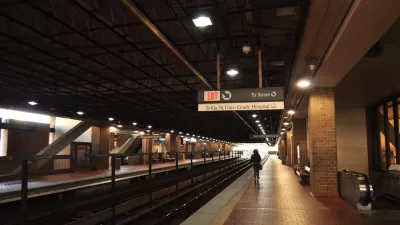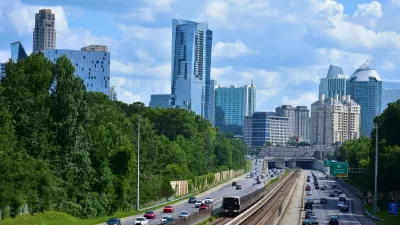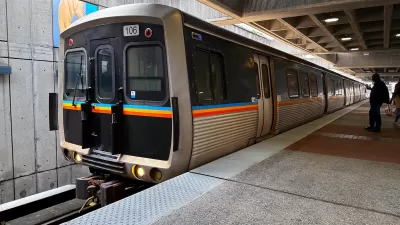Atlanta’s transit agency is slowing its plans to extend its bus and rail lines, prompting criticism from city officials.

The Metropolitan Atlanta Rapid Transit Authority (MARTA) is scaling back its expansion plans despite a voter-approved ‘More MARTA’ sales tax passed in 2016, writes Maria Saporta in the Saporta Report. The agency revealed that it plans to complete nine projects by 2028, with only one of them, the expansion of the Atlanta Streetcar, being a rail project. This is in sharp contrast to previous plans—in 2016, MARTA had as many as 70 projects in the pipeline. Saporta adds that the agency has downgraded some planned light rail lines to bus rapid transit (BRT), a move the agency says will save money and time.
While the agency has collected $394.8 million from the More MARTA tax, roughly 46 percent has been spent on bus operations and enhancements, despite an early projection that just 10 percent of revenue would go toward bus enhancements.
The article details frustration from city leaders with the slow pace of MARTA’s expansion. Councilmembers are calling on MARTA to return funds to the capital funding pool, and Mayor Andre Dickens replaced two MARTA board members in a sign of disapproval. “It’s important for me, the City Council and the public to say: ‘MARTA, we want to see projects delivered. We want to see Campbellton Road BRT completed soon. We want to see the Summerhill BRT, completed soon. We want to see Metropolitan and Cleveland Avenue projects completed, and we want to see these things done on time and on budget,” Dickens said.
FULL STORY: Less is less with More MARTA projects

Trump Administration Could Effectively End Housing Voucher Program
Federal officials are eyeing major cuts to the Section 8 program that helps millions of low-income households pay rent.

Planetizen Federal Action Tracker
A weekly monitor of how Trump’s orders and actions are impacting planners and planning in America.

Ken Jennings Launches Transit Web Series
The Jeopardy champ wants you to ride public transit.

Philadelphia Is Expanding its Network of Roundabouts
Roundabouts are widely shown to decrease traffic speed, reduce congestion, and improve efficiency.

Why Bike Lanes Are Good: An Explainer for the US Transportation Secretary
Sean Duffy says there’s no evidence that bike lanes have benefits. Streetsblog — and federal agencies’ own data — beg to differ.

California Invests Additional $5M in Electric School Buses
The state wants to electrify all of its school bus fleets by 2035.
Urban Design for Planners 1: Software Tools
This six-course series explores essential urban design concepts using open source software and equips planners with the tools they need to participate fully in the urban design process.
Planning for Universal Design
Learn the tools for implementing Universal Design in planning regulations.
Ada County Highway District
Clanton & Associates, Inc.
Jessamine County Fiscal Court
Institute for Housing and Urban Development Studies (IHS)
City of Grandview
Harvard GSD Executive Education
Toledo-Lucas County Plan Commissions
Salt Lake City
NYU Wagner Graduate School of Public Service





























